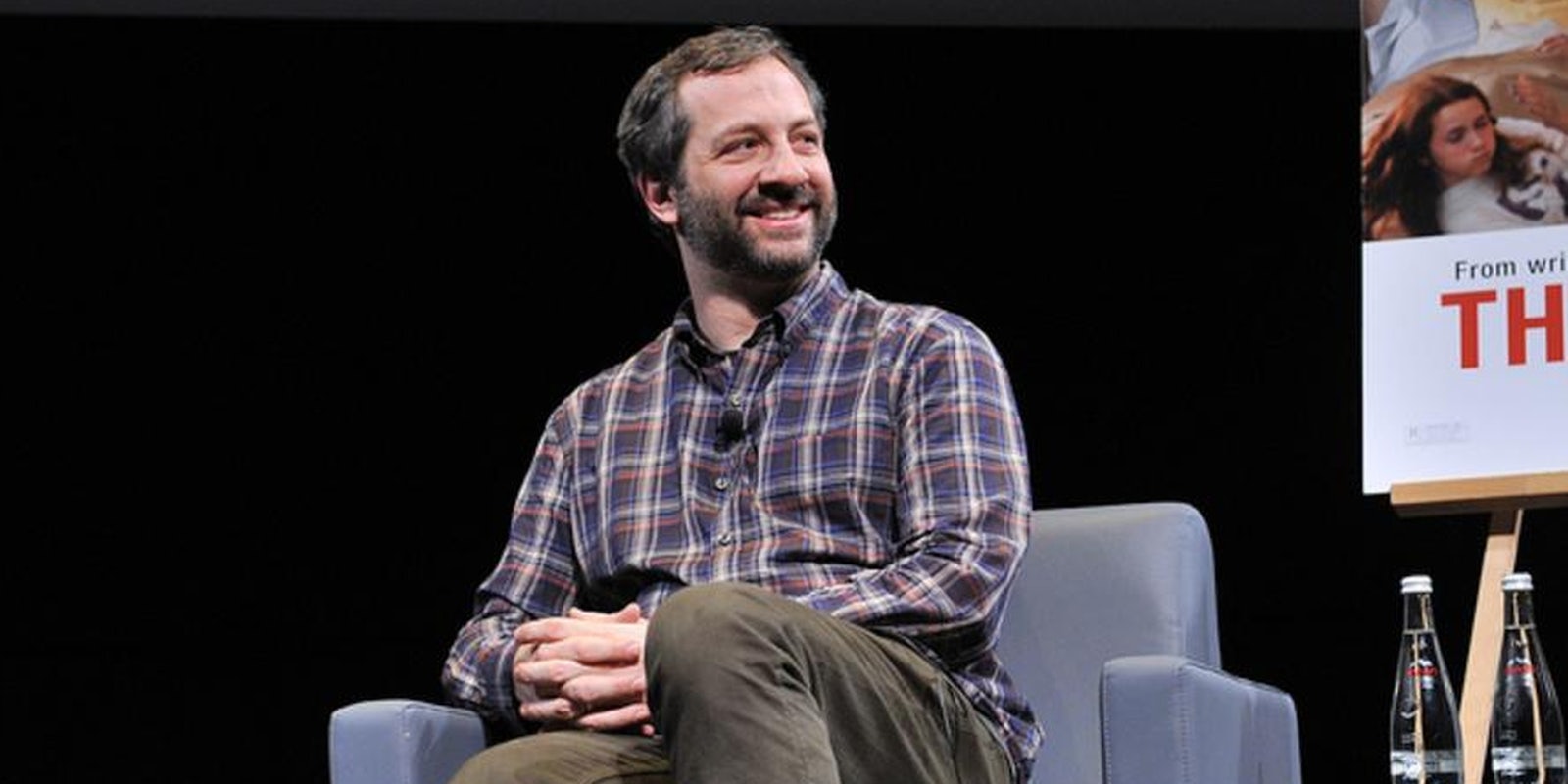Earlier this week, Judd Apatow, a man who has already become fairly accustomed to putting his foot in his mouth, shoved his toes even further down into his gullet when he tweeted the following about the Sony email scandal:
https://twitter.com/JuddApatow/status/543120950552576000
https://twitter.com/JuddApatow/status/543158599925497856
Obviously, Apatow was drawing parallels between the Sony hack, which revealed, among other things, incendiary email exchanges between CEO Amy Pascal and producer Scott Rudin, and Celebgate, the nude photo hack earlier this year in which thousands of private nude images of celebrities like Lawrence, Kate Upton, and Kirsten Dunst were leaked online.
On its surface, the parallels were easy to draw: In both cases, the offending content was obtained without consent. But there are many, many reasons why Apatow’s tweet was offensive and just made of so much wrong, as Apatow’s followers later pointed out:
@JuddApatow … Not at all the same thing.
— Jennifer George Caligiuri (@jenncaligiuri) December 11, 2014
https://twitter.com/annedeacetis/status/543126300278669312
https://twitter.com/Phoenix_Blue/status/543127445168062464
@JuddApatow This is a really disappointing tweet and totally ignores the fact that one of those is a sex crime.
— nikki “cute trash” black (@nikkiblackcat) December 11, 2014
Here’s what it comes down to: The Sony email hack is a PR crisis, orchestrated for the sole purpose of embarrassing a corporation that had, at least in part, done something to earn the hacker’s ire, whether it was merited or not. (There’s speculation that the hack was committed by North Korea, in retaliation for the upcoming film The Interview. North Korea has denied playing a role in the hack.) And it truly sucks. I know I wouldn’t be happy if my private email was hacked into and my correspondences published.
But although such a situation would be embarrassing, it wouldn’t be half as much of a violation of my right to privacy as what Lawrence and Upton experienced earlier this year. Unlike the Sony hack, Celebgate was a sex crime, orchestrated for the sole purpose of embarrassing those who had committed the dual grave errors of being both a) famous, and b) female. To compare the two, as Apatow did, is to do a grave injustice not only to the female celebrities impacted by Celebgate, but to minimize the plight of female sex crime victims in general.
Given his track record, it’s not so surprising that Apatow would draw such a flippant comparison between racist Hollywood millionaires and female sex crime victims. Despite his attempts to reinvent himself as a sensitive male feminist by mentoring female artists like Lena Dunham, the director has received flak for years for depicting women as one-dimensional, shrewish harpies in films like Knocked Up and This is 40. And so far, he’s responded to others’ criticism of his Sony tweet the same way he’s responded to critiques of sexism for years: By immediately going on the defensive.
But what is somewhat surprising is that even though stuff like this—i.e., celebrities tweeting dumb shit—happens on a daily basis, the normally-churning think piece machine has been relatively silent following Apatow’s tweet. That might be because this sort of tone-deaf comparison is to be expected from wealthy white men like Apatow, but it also could be for another, far more frightening reason: In his view that hacking someone’s business email is akin to posting a woman’s nude photo without her consent, Apatow is not alone.
Compare the response to Apatow’s tweet to the endless slew of think pieces and op-eds that emerged from Celebgate, almost immediately after female celebrities’ nude photos started surfacing on 4chan and Reddit. The media was quick to establish a few things, right off the bat: This was not consensual, this was a sex crime, and viewing these photos was akin to being complicit in the exploitation of women’s bodies. For a moment, it seemed that the world’s sympathies were in the victims’ favor for once, that everyone was banding together to say that posting photos of women’s bodies without their consent is Not OK, and we are Not Going To Take It Anymore.
But as the furor over Celebgate started to die down and its victims gradually re-emerged into the glare of the public eye, we seem to have forgotten about that point of view. On the contrary, if the lukewarm response to Apatow’s tweet is any indication, we seem to have reached a consensus regarding revenge porn that is the exact opposite of the one we came to a few months ago. Posting nude photos of women without their consent is not a violation of their humanity, but a regrettable and unavoidable result of being female that happens so frequently it is not even worth commenting on.
Apparently, we think revenge porn victims like Lawrence should look back at Celebgate the way film producer Scott Rudin will likely look back on this past week: As a fleeting scandal, a small stain marring an otherwise pristine career. The exploitation of women’s bodies has become so normalized to us that when some butt-hurt white guy compares a couple millionaires’ emails getting published to having millions of men masturbate to your breasts and vagina without your consent, we barely bat an eyelash. The comparison makes sense to us. And more than Apatow’s tone-deaf tweet, the fact that we do not find such comparisons offensive is the most shocking thing of all.
Photo via Canadian Film Centre/Flickr (CC BY 2.0)


